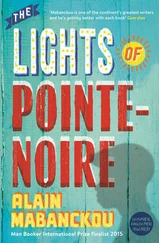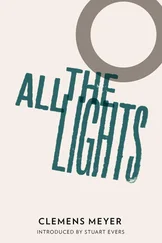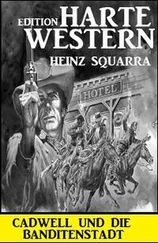Alex knew that this departure from his usual routine – fifteen minutes of inconsequential time – would not go unpunished by his wife. The food was already getting cold on the table.
‘Have you forgotten Jessica’s got her first exam tomorrow?’ Margery demanded.
‘There were some unusual findings,’ Alex said. ‘I had to stay.’
Across the table his daughter was sketching aimlessly, from time to time chewing at her pencil. She seemed oblivious to her parents’ bickering.
‘So what’s so new?’ Margery persisted. ‘The drugs you feed those animals either make them sick or stop them getting that way. What’s so different this time?’
Alex swivelled in his chair to avoid the angry eyes that every mealtime now seemed to find a different fuel to burn. The day before it had been their forgotten wedding anniversary, the day before that keeping her waiting in the supermarket car park – trivial things that a more reasonable person might take in their stride. No way would he tempt providence by telling her that he had discovered something quite remarkable, something so unusual that he had even – and for the first time – withheld it from his colleagues.
He studied Jessica’s clouded face, then looked at the tense hand clutching the sketch-pad. The pallor of the knuckles almost merged with the whiteness of the paper. ‘What’s the problem, Jessica?’ he asked.
‘It just doesn’t come,’ she replied, her voice trembling with frustration. ‘And it’s for the bloody exam.’
The rending of the paper as she tore it from the pad echoed his own frustration when his experiments didn’t go right. Was it dedication to a subject she loved – or confrontation of an obstacle too difficult to surmount? It was hard to tell. But when she looked at him, the fear – the same primal fear that he had seen in the eyes of his monkeys – told him which it was. At school she had been the most gifted in her year, but they both knew that relinquishing the Oxbridge place that had been within her grasp to study at art college was becoming an unwelcome spectre at the door.
Margery refused to make his usual coffee. He made that an excuse to leave the table and the room.
In the attic, where he kept his computer, he took the disc containing the copied data from his briefcase and inserted it. He stared at the now familiar figures. The monkeys on the highest dose of the drug – developed to restore memory loss in ageing people – had performed the tasks quicker and better. That was not unexpected. But there was something else there, something that suggested more than just an improvement in mental agility. The objects that the animals had been required to position on the touch screen seemed to have been grouped in ways that Alex could explain only in aesthetic terms. The animals appeared to have become creative.
Alex pulled at his desk drawer. Rummaging behind the pens and packets of envelopes he withdrew a bottle of Scotch. Smiling to himself he patted its flat face and replaced it in the drawer. ‘Later,’ he exclaimed. ‘Tonight you have a rival.’
He placed a blank sheet of paper on his desk. From his briefcase he took an unlabelled amber bottle and carefully broke the seal. The pale yellow contents fell like flour onto the paper. With the edge of another sheet he divided the pile, first into two, then into four, and so on until he had many equal mounds. Then he transferred the powder to transparent plastic envelopes, of which he had a copious supply. He half-filled a glass with water intended for the whisky and emptied into it the contents of one of the envelopes. Against the light the scintillating particles rode the vortex, then disappeared. In one determined gulp he drank it down.
Alex was not unprepared for what came next. Only two years before, the company had developed a drug that had reached clinical trials – that is to say it had been tried for the first time in people. But no sooner had that got underway than the long-term toxicity studies in rats showed that the drug could cause blindness. Further development was stopped, but by then Alex had tried it on himself. One morning he had woken to find he could not dissociate his thoughts from the dreams of the night before. For nearly a whole morning he had inhabited a surreal and terrifying world, in which violently complex images fought for possession of his head. When he emerged from his study he could not explain – even to himself – the abrasions on his face and bruises on his body. After that he devised tests to assess his own responses to small doses. One involved the resolution of complex patterns into simpler geometric forms – in which he was surprised to find the classical golden ratio figured prominently – and in another colours and shapes were juxtaposed. In the early days he had tried these tests on his colleagues. But without giving sufficient explanation he had been ridiculed for his efforts.
He withdrew a test sheet from another drawer and began to complete it. He did this with a different sheet every half hour for the next three hours. When he knew that the levels of the drug within his body would be starting to fall he went to bed. To his relief he found Margery asleep. The following morning he felt fine, as if nothing had happened.
Except that it had. In each of the tests he had scored higher than when he had taken similar tests without taking the drug. For the next five days he repeated the exercise each evening, always with the same result. ‘You look a bit flushed these days,’ Margery told him one morning, but he attributed this to the success of his experiments.
Margery seemed to be recognising other encouraging changes. For example, she had looked at him in bewilderment on finding him glued to the radio and humming along to Messiaen’s Quatuor pour la fin du temps ; and, later, while reading the paper at the kitchen table, tapping out the more complex rhythms of Boulez’s Third Piano Sonata with his left hand while executing complicated doodles with his right. When he smiled up at her she shied away as if the devil was lurking in his soul. ‘What I have to put up with! Will it never end?’ he heard her mutter to herself.
At the laboratory he became secretive about the work he was employed to do, then tried to hide his findings. Each day he would get to work before his colleagues to massage the data, at first by changing the odd digit here and there; then, when that didn’t seem to make much difference, by repositioning decimal points in a way that could be interpreted as copying errors. He unearthed earlier toxicology data, but there were no records of effects on rats or dogs that even hinted at what he had found in his monkeys. One morning there was a meeting to review progress, and he stayed away feigning migraine, while sending an e-mail to say that his studies had shown nothing of interest. Then, out of the blue, the company ceased development of the drug in a rationalisation of company initiatives. But by this time his attic drawer was well stocked with tiny envelopes containing the pale yellow powder. That evening he felt quite light-headed, as if a weight had been taken from his shoulders.
Each morning during the following weeks Alex rose early to be first in the kitchen. Having taken one of the envelopes from the drawer on his way to breakfast, he would stop on the stairs to inspect Jessica’s increasing output that was now spilling into the hall and downstairs rooms. He peered at each new work to judge whether it was better than what had gone before, but usually walked on bemused. He regretted his inability to recognise true artistic merit, having long accepted that Margery – not he – was the likely source of Jessica’s ability, limited though it might be. Still, he could see that there were changes, and that at least was good.
Читать дальше












